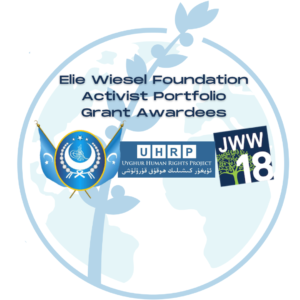WHY are you going THERE? I traveled to Congo to bear witness. Everyone said I was so brave to go, but I discovered that I was not the brave one. The people of Congo who have survived and prevailed under dire circumstances are some of the most courageous people I have ever had the privilege to meet. Since my return, I have been struggling to organize my thoughts and to find words to adequately describe the days we spent in South and North Kivu. This process will take time.
Congo is contrast. It is a country of unlimited wealth in minerals, water power and fertile soil, yet the people are among the poorest in the world. The landscape is so beautiful — lush, green; rivers and waterfalls abound. The beauty took my breath away. Bananas, corn, papaya, potatoes grow in abundance, yet children go hungry and suffer from malnutrition. The government mandates education, yet there are no schools provided for its youth. Paved roads do not exist because there is no infrastructure to build and maintain them. It takes hours to travel short distances. Everyone uses a cell phone, yet no one has a land line for lack of infrastructure. Cooking takes place on open fires because there are no gas or electric lines to provide power. The air is thick with smoke.
We were witness to survivors of sexual violence; we saw babies, children, girls and women of all ages, because the perpetrators do not discriminate when wielding this tool of conflict. Children are forced to give birth to babies created from rape. Young girls endure multiple surgeries to repair the damage done to their bodies. We met with boys and young men who were forced to join militias as children, and who admitted that they had been part of the rampage of blood and violence.
One looks around and sees disaster, but that is not all that I bring back in my memory and my heart. Every day we climbed into our jeeps with NGO markings and a white flag to go see where hope can exist in this morass of hopelessness. Jewish World Watch, in its focused funding of programs with outstanding partners, is an instrument of change in Congo. It is impressive to recognize how good partners have been found so that lives can be changed.
In the course of one day, we looked into the eyes of two 17 year old girls who had very different stories to share. One had given birth after being raped. She was grateful for the treatment she and her baby had received at Panzi Hospital but most especially for the opportunity to learn a skill so that she could earn a living and be independent — an opportunity granted through a program funded by JWW. We met Rosette in the village of Mumosho, where she goes to school because JWW pays the tuition for her and 168 additional students. She is participating in an after school leadership program and expects to go to university one day. Amani, our partner and this program‘s director, is giving life and hope to this village in the conflict zone.
Another program that stands out is LAV (Laissez L’Afrique Vivre — Let Africa Live). In addition to housing and helping girls who are victims of sexual violence, boys from the militias are housed and assisted. Classes are offered so that everyone can learn a trade — graduates of a cooking hospitality program opened a restaurant where we ate lunch. Students are learning to make furniture, to sew and to work with metal. The first thing that popped into my head was that swords were being turned into plowshares. Congo could have a thriving economy and these young people are being prepared to build the future.
The future is also being built in other profound ways. In Goma, the leadership programs offered to young women and men by Esther and Camille Ntoto, partners of JWW’s, are exceptional. In addition to tutoring and discussion, students feel invested and responsible for changing their country for the better. Congo is a Christian and tribal culture. Groups such as Sons of Congo teach men and boys how to create stronger families in this time of violence and unrest. These programs empower men in positive ways.
There are more stories, more memories and I will never forget this experience. It will take a long time for me to process but I am happy to know that the life changing work of JWW does not wait while I think and sort my thoughts. My gratitude to Janice Kamenir-Reznik, Naama Haviv and the heroes who work in Congo.


